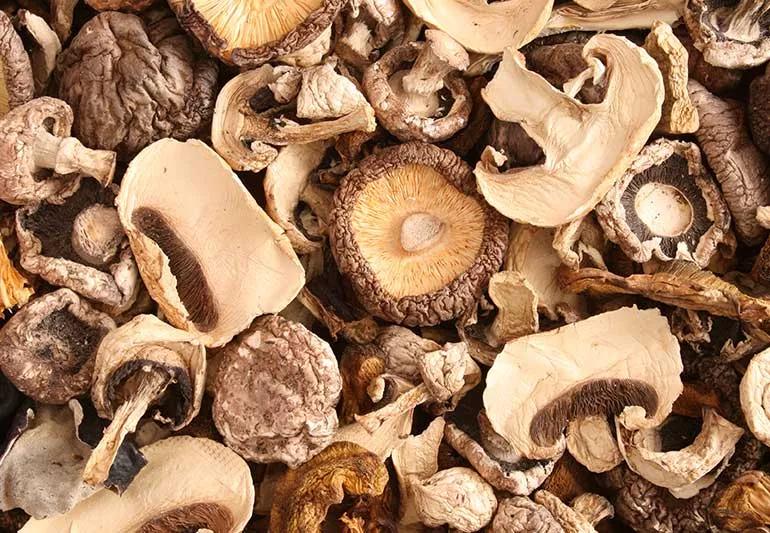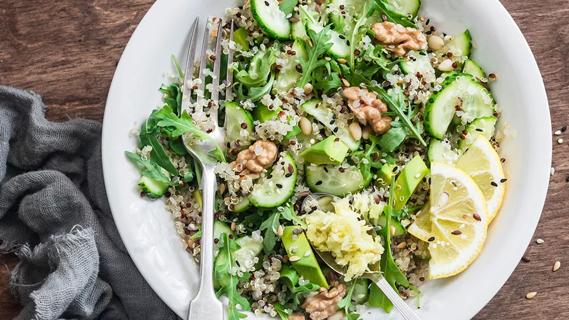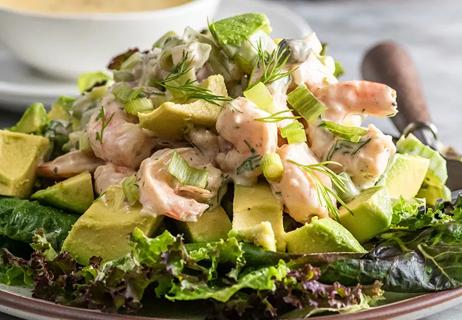How this nutrient-rich fungus can boost your health

Throughout history, civilizations have treasured mushrooms as a source of strength and healing. Greeks believed eating mushrooms made warriors strong, while the Chinese culture has long considered them a medicinal food for healthy living. And today, Japan has an approved mushroom-based drug to treat cancer.
Advertisement
Cleveland Clinic is a non-profit academic medical center. Advertising on our site helps support our mission. We do not endorse non-Cleveland Clinic products or services. Policy
Mushrooms are popular in the United States as a flavorful, nutritious food. The average American eats nearly three pounds of mushrooms a year, according to the Agricultural Marketing Resource Center. Many people also use mushrooms for medicinal purposes in dietary powders, liquids and supplements.
“We’ve long known that mushrooms are good for you because of their bioactive compounds, and we’re learning more about their benefits every day,” says dietitian Joyce Prescott, RD. “There are so many varieties to enjoy in a wide variety of dishes, and we can also use them in many ways to supplement our diet and help keep us well.”
Mushrooms are a fungus. Scientists have identified thousands of species, but only about two dozen are widely accepted for use as food. Some mushrooms have psychedelic compounds (psilocybin) that cause hallucinations or an altered state of consciousness. Many others found in nature — like the “death cap mushroom” — can’t be safely consumed.
Unless you’re a mushroom expert, stick to your supermarket aisle to avoid poisoning or other side effects. You’ll still have plenty of options, though prices vary.
Some mushrooms have a rich umami (savory) taste, making them a good meat substitute. Others feature more delicate, earthy flavors. Button mushrooms, the most common mushrooms in the U.S., have a mild taste.
Advertisement
Other, widely available types include:
Mushrooms contain health-boosting vitamins and minerals, along with protein and fiber. For example, one cup of cremini mushrooms has only 15 calories, but 2 grams of protein and nearly 1 gram of fiber.
Mushrooms also contain compounds (including polysaccharides and sterols) that may help protect your health and prevent disease. Nutrients in mushrooms include:
Prescott dives into the exciting world of mushroom research. While research hasn’t been extensive and more is certainly needed, some studies have shown that mushrooms may:
Chronic inflammation (long-term swelling) is associated with heart disease, cancer and other medical conditions. Mushrooms contain certain antioxidants that help protect your body from stress and prevent or slow cell damage.
Mushrooms also activate substances in your immune system that can enhance its ability to protect you against infection and disease, including the growth of tumor cells. Some research has found a potential link between higher mushroom consumption and lower cancer risk, especially breast cancer.
Potassium is a mineral and electrolyte that helps your body control blood pressure. Most Americans don’t get enough potassium. Because mushrooms are rich in this mineral, they may help lower high blood pressure (hypertension). They may also reduce your risk of developing cardiovascular disease.
Research suggests that a mushroom-rich diet can help you safely lose weight when combined with exercise and healthy lifestyle habits. In one study, people who substituted 20% of their meat consumption with mushrooms showed improved weight loss results.
Advertisement
The flavor of mushrooms may reduce your need for added salt, too, which helps control your blood pressure. Researchers found that substituting mushrooms for half the meat in a ground beef recipe kept the taste but reduced sodium intake by 25%.
Vitamin D2, a type of vitamin D, keeps your bones strong and muscles working properly. Most of our vitamin D comes from animal-based sources, dietary supplements and good old sunshine. And here’s a fun fact: Some mushrooms may have a label that reads “UV-treated” or “rich in vitamin D.” That’s because mushrooms contain ergosterol, which turns into vitamin D when exposed to ultraviolet light.
“These UV-treated mushrooms are enriched for your health,” explains Prescott. “When mushrooms are exposed to ultraviolet radiation or even sunlight, the ergosterol transforms into vitamin D. So, you get a high concentration of vitamin D when you eat them, potentially enough to meet 100% of your vitamin D needs for the day.”
You can buy UV-treated or vitamin D-enriched mushrooms at the store. Or try it at home:
Sun and done!
The nutritional value of mushrooms may help protect your brain from mild cognitive impairment (MCI). In one study, participants 60 and older who ate more than two cups of mushrooms per week had a much lower risk of developing MCI. Other research suggests mushrooms rich in polyphenols and certain antioxidants may help protect against neurodegenerative diseases such as Alzheimer’s and Parkinson’s.
Advertisement
“This mushroom research is interesting because it could help with serious brain conditions that affect so many people,” says Prescott. “We need to know much more, but early studies are promising.”
Mushrooms are a boon for healthy heart lovers. Their nutrients and plant-based compounds can help prevent plaque buildup in your blood vessels. Substitute flavorful, low-sodium mushrooms for meat while keeping calories, fat and cholesterol levels low.
“Some mushrooms have taste and texture just like meat,” says Prescott. “And the benefits of substituting them for beef, lamb or other red meat can’t be beat. You get the nutrients and the low calories, sodium and cholesterol without sacrificing flavor.”
Mushrooms contain substances you need to balance your microbiome (fungi, bacteria and viruses) in your gut and fuel the growth of good bacteria. By supporting your digestive system and immune system, mushrooms can help make sure that the nutritious food you eat keeps you healthy and strong.
The answer is: It depends. Mushrooms you buy in a store are generally safe unless you have an allergy to mushrooms or mold (remember, mushrooms are fungi). Wild mushrooms you find in nature are much, much riskier to eat.
Advertisement
It takes experience and expertise to identify mushrooms in nature you can safely eat. And even then, few wild mushrooms are safe to eat raw.
Dozens of mushrooms (often called toadstools) contain a deadly poison. Symptoms of mushroom poisoning typically appear within a few hours of eating mushrooms. They include:
Call 911 or seek medical attention immediately if you suspect you have mushroom poisoning.
Mushrooms are a common and nutritious food, recognized around the world for their potential health benefits. With a range of safe, edible types to choose from, you can eat them in a sandwich, mix them into soups and salads or even substitute them for meat. They contain important substances known to ward off disease, while their interesting flavors and textures add flair to any dish. Impress guests — and yourself — with a healthy serving or two.
Learn more about our editorial process.
Advertisement

When it comes to getting proper nutrition, your assigned sex can play a role — but there’s more to it than that

Ground flaxseed is full of heart-healthy omega-3s, antioxidants and fiber, and easy to add to just about any recipe

From meat to beans, we’ve got some ideas to help you create the perfect-for-you chili recipe

Only 130 calories per serving, this dessert deserves your attention

Plan ahead, bring a cooler when possible and don’t forget the water!

A delicious twist on grilling

A cool, refreshing and satisfying salad!

Type 2 diabetes isn’t inevitable with these dietary changes

Applying a hot or cold compress can help with pain